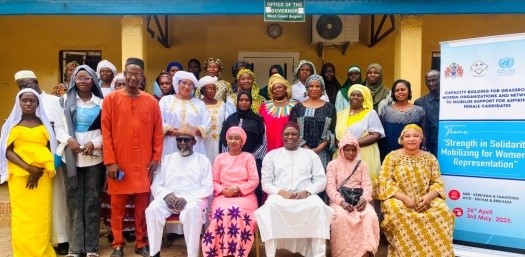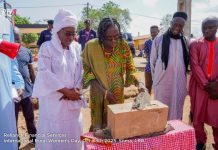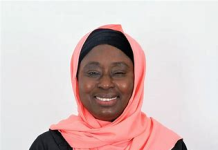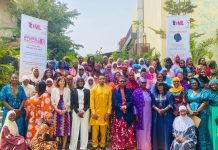By Mariama Marong
In a determined push to elevate women’s voices in local governance, the National Centre for Civic Education (NCCE) convened a workshop Friday aimed at empowering grass-root women to assume leadership roles and promote inclusive development across Gambian communities.
Held at the Governor’s office in Brikama under the theme “Strengthening Solidarity Mobilization for Women’s Representation,” the event was part of a broader initiative funded by the United Nations Development Program (UNDP) through its Women’s Leadership project. The workshop brought together women leaders, community members, government officials, and civil society groups, with a focus on dismantling long-standing barriers to women’s political participation.
“Inclusive governance and the political involvement of women are essential to our national development,” said Momodou A.H. Bah, program officer at the NCCE. “This capacity-building effort is not just about knowledge—it is about enabling women and their organizations to confront the cultural and institutional impediments that hinder their involvement in leadership and peace-building processes.”
Bah noted that many women continue to face deep-rooted challenges, including cultural norms, restrictive legal frameworks, and limited opportunities for leadership aspiration. As part of the initiative, eight training sessions were held in the North Bank and West Coast Regions, while four sessions were conducted in each of the remaining regions. In total, 160 participants—including representatives from women’s organizations, government bodies, civil society groups, local authorities, and persons with disabilities—attended the workshops.
The overarching goal, Bah said, is to cultivate a support system around female candidates ready to step into public office. “This is not only about equality. The future of our society hinges on the presence and influence of women in decision-making spaces,” he said. “We must rally behind women with leadership aspirations and provide them the tools and encouragement to succeed.”
The message was echoed by West Coast Region Governor Ousman Bojang, who challenged prevailing gender norms that hinder women’s advancement. “Our culture should not be an obstacle,” he said. “It is essential that women boldly pursue leadership, not only at the community level but on the national stage as well. Their active participation is critical to collective progress.”
Jainaba Bah, program manager of the Inter-Party Committee (IPC), emphasized the foundational role women must play in shaping the political landscape. “Women’s leadership is not optional—it is fundamental,” she said. “And it begins with women supporting women. This is a call for unity and engagement at every level of our political structure.”
As the country prepares for future electoral cycles and decentralization reforms, advocates say such programs are vital to ensuring a more representative and equitable political future—one where women are not just present, but leading.





















